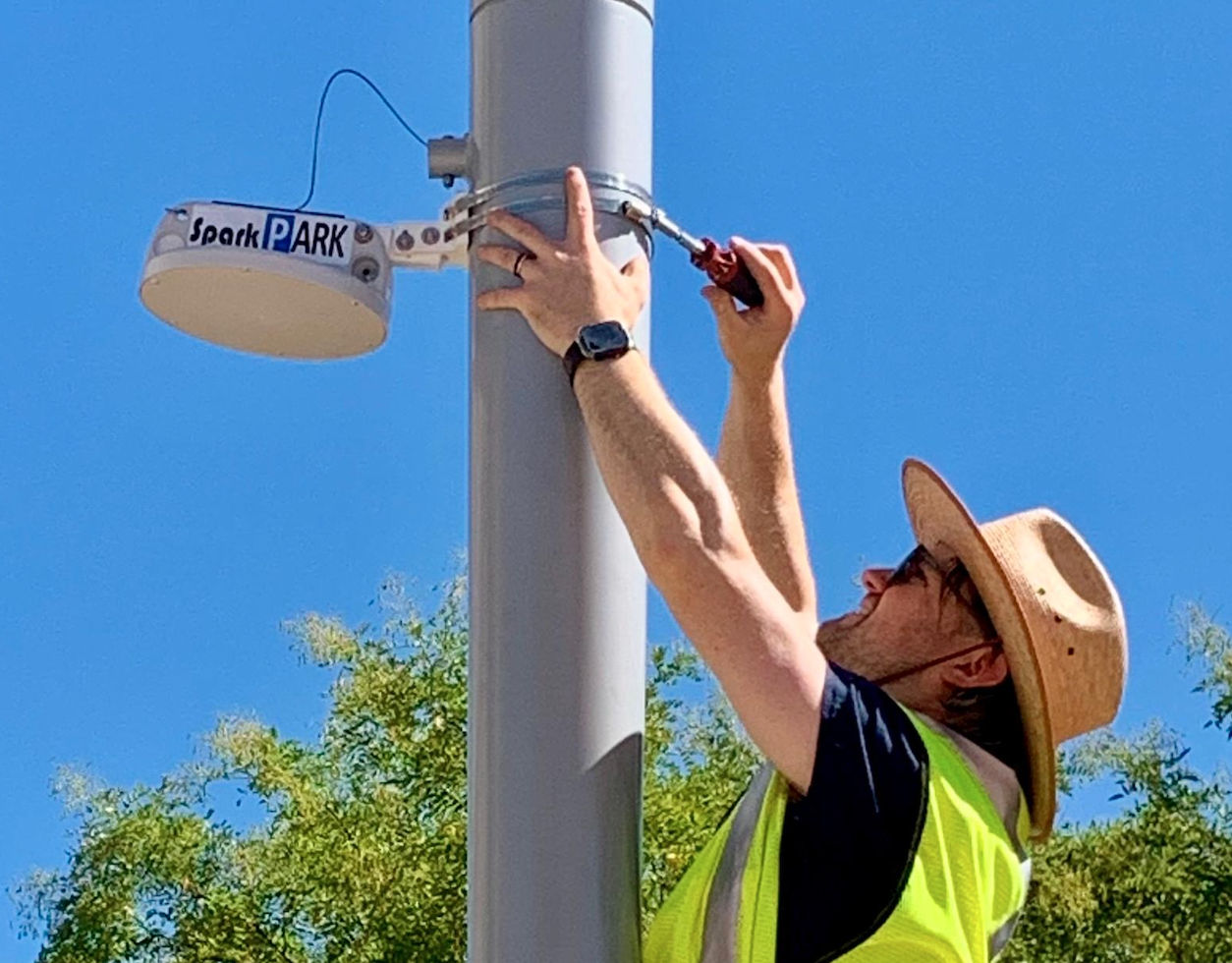
Denver South leads trial of digital micromobility parking
07 October 2025
by William Thorpe
Denver South, a public–private regional partnership, has launched a digital micromobility parking pilot that uses solar-powered sensors to pinpoint where e-scooters and e-bikes are parked.
The initiative, the first of its kind in the US, is being delivered in partnership with Spin, Sparkpark and local authorities. It introduces a virtual docking network that tracks vehicles to within a few centimetres, even in spots where tall buildings or other obstacles make regular GPS unreliable. And provides real-time data on parking habits and enabling more efficient street management.
Daniel Hutton, Vice President of Transportation and Mobility at Denver South, told Cities Today the project is about staying ahead of growth and ensuring micromobility remains a positive part of the public realm.

“We saw the need for a more precise micromobility parking system by looking ahead at how our region is growing and how people’s travel habits are changing,” he said. “Our goal is to grow micromobility options without blocking sidewalks, pathways or ramps, ensuring accessibility for everyone.”
Although the region has not yet experienced major congestion from shared scooters or bikes, usage is rising fast with the e-bike and e-scooter programme doubling in size over the past year.
“The pilot gives us a chance to test technology that not only helps riders park more neatly but also supports Spin’s day-to-day operations by making it easier to locate and manage vehicles in the field,” he said.
The antennas attach to existing poles, are powered by small solar units and can be installed quickly and cost a fraction of physical docking stations. Based on past installations throughout the region, Denver South estimates that the installation for one docked micromobility station alone can cost upwards of US$80,000 to US$100,000.
There is no need for concrete, wiring or heavy equipment as the system operates wirelessly and is powered by solar energy, with 3D-printed brackets simplifying setup and maintenance.
Denver South is co-funding the pilot with Spin and coordinating closely with local governments to track data, assess community feedback, and measure compliance.
“A user pays US$1 to unlock a scooter and then our partnership picks up the remaining tab for up to 30 minutes of use per ride,” Hutton said. “Since we already have a partnership agreement set up for Spin operations, it allows us to ‘piggy-back’ on that relationship so that we can develop, set and track key performance indicators for the Sparkpark pilot.”
The collaboration includes sharing data insights, monitoring how scooters and e-bikes are being used and parked and gathering feedback from the riders and community. By working together, Denver South will evaluate the pilot’s impact on public space management and accessibility.
The pilot will run until July 2026, testing reward-based parking incentives and gathering operational insights.
“We’ll be looking at ridership compliance, operational efficiency, maintenance savings, and community feedback,” Hutton said. “By considering all of these factors together, we can make an informed decision about whether to expand or adopt the system permanently.”
Hutton said the initiative fits into Denver South’s wider mobility strategy and ties into its bigger goal of making transport in Denver South more sustainable and easier to use.
“Other US cities can take a key lesson from our approach: pairing innovative technology with close collaboration between local government, businesses, property developers, operators and the community can make shared micromobility both practical and sustainable.”
Main image: Denver South/Sparkpark













